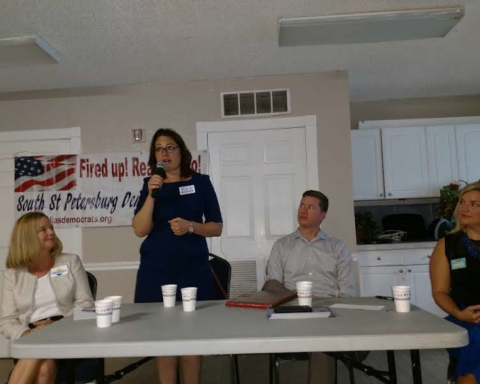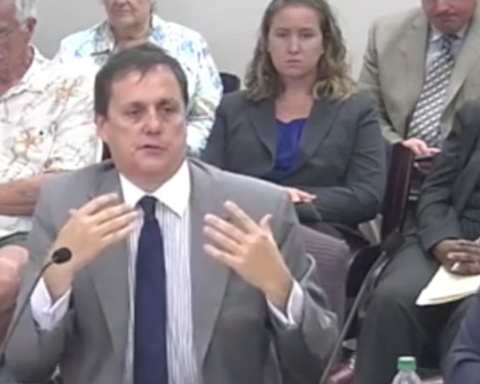 The Florida Department of Environmental Protection has entered into a consent order with the City of St. Petersburg after determining the city violated environmental laws that resulted in the unpermitted discharges of sewage into Clam Bayou and Tampa Bay during August of 2015, June of 2016, and Aug. 31-Sept.13 of this year.
The Florida Department of Environmental Protection has entered into a consent order with the City of St. Petersburg after determining the city violated environmental laws that resulted in the unpermitted discharges of sewage into Clam Bayou and Tampa Bay during August of 2015, June of 2016, and Aug. 31-Sept.13 of this year.
The 11-page document was signed by Mary Yeargan, Southwest District Director for the Florida DEP and sent to St. Petersburg Mayor Rick Kriseman and Public Works Administer Claude Tankersley on Friday. Yeargan writes the DEP will soon be “reaching out to schedule a meeting in the very near future to discuss the terms of this Order.”
The DEP found violations to have occurred at three specific times: The first on Aug. 2-10 of 2015, when more than 31.5 million gallons of raw sewage dumped into Clam Bayou and surrounding neighborhoods.
On June 6-9 of 2016, approximately 230,000 gallons of untreated wastewater and effluent was released through overflows of manholes, and 9.77 million gallons of partially treated wastewater through the emergency outfall at the Albert Whitted Treatment Plant.
And from Aug. 31-Sept. 6 of 2016, unpermitted discharges of wastewater and effluent from several treatment plants, “resulted in the release of an unknown number of untreated wastewater and effluent through overflows of manholes and between 78 and 93 million gallons of partially treated wastewater” through Albert Whitted, and 58 million gallons of treated effluent to Jungle Lake.
In June, Pinellas County House District 69 Republican Kathleen Peters sent a letter to Florida DEP Secretary Jon Steverson, calling for an investigation into the city’s sewer system.
DEP spokesperson Dee Ann Miller says in June, the City of St. Petersburg and the DEP discussed a consent order, which sets up remedies and timelines “to reach solutions to bring the facility back into compliance.”
That document was delivered on Friday.
The Tampa Bay Times reported Friday that Mayor Kriseman is calling for an independent firm to investigate why a 2014 consultant’s study that indicated closing down the Albert Whitted sewer plant could lead to spills and dumps never reached his desk.







